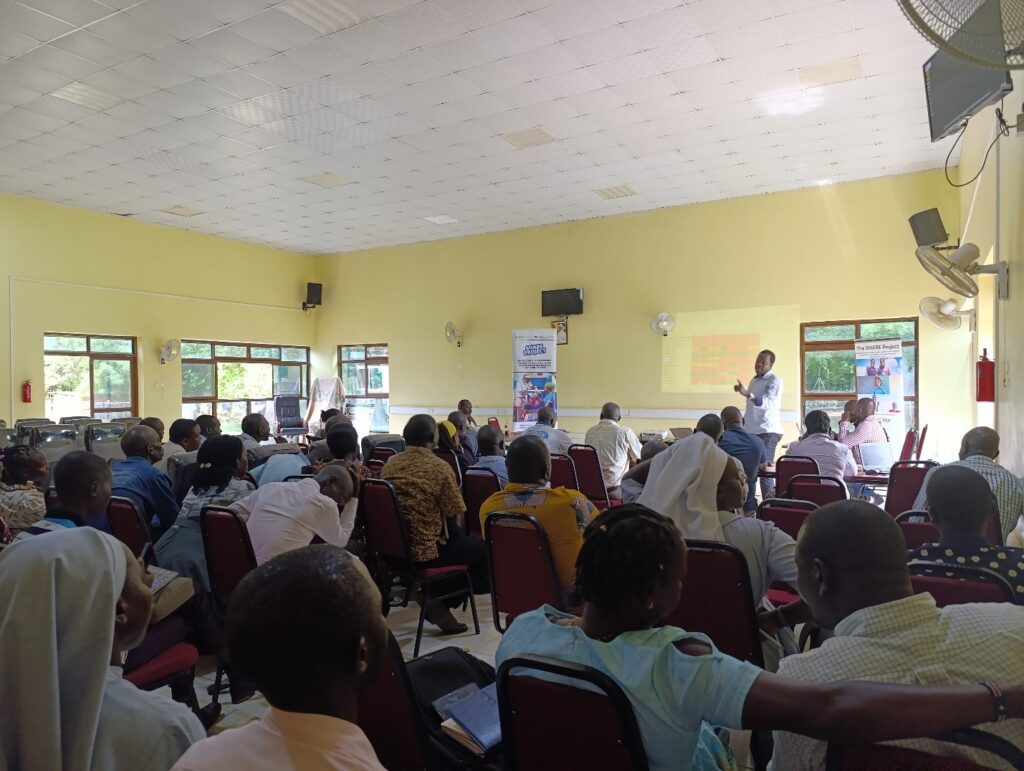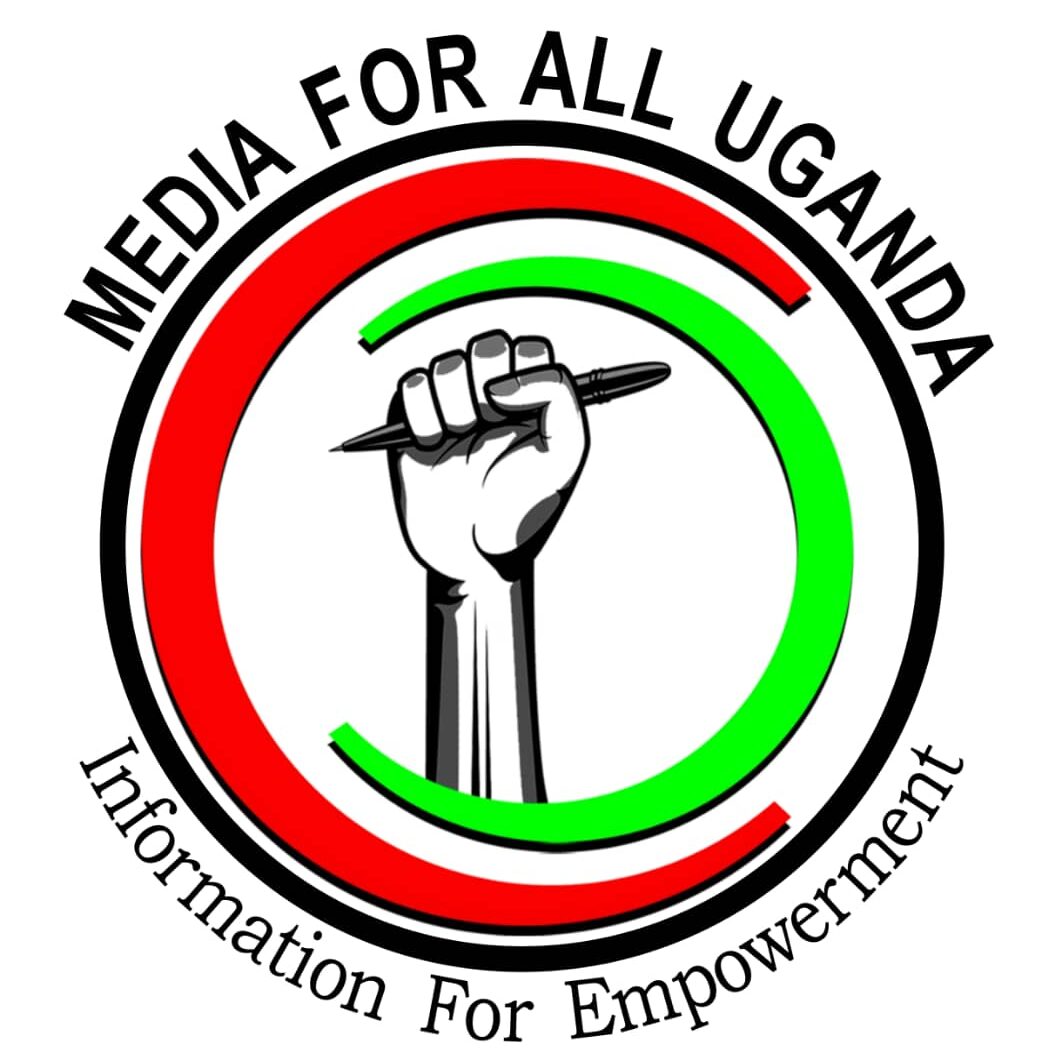HEALTH FACILITY INCHARGES IN ADJUMANI STRATEGIZE TO IMPROVE PERFORMANCE IN WASH AND INFECTION PREVENTION.
By Bazio Doreen
Authorities and health facility managers in Adjumani have met to strategize how to improve performance on the WASH and infection prevention scorecard. This follows a dismal performance in water coverage, sanitation hygiene, and infection control at both the health facility and community levels.
According to a study conducted by WaterAid, an NGO implementing in the district, for the period between January and March 2025, the 43 health centers in the district had achieved an average of 58% in WASH and Infection control at their facilities. The study assessed the health facility based on 6 parameters: Water supply, sanitation facilities, health care waste management, Environment and cleaning, management and training, and hand hygiene. The findings show that: Water coverage stands at 68%, sanitation and hygiene stand at 56%, infection prevention stands at 62%, health care waste management stands at 64%, washroom management stands at 53%, and general cleaning and administration stand at 43%.
While sharing the findings in a review meeting held at the district council hall on Wednesday, April 30th, 2025, Onen David Livingstone, the SHARE Project Officer—WaterAid, noted that the findings were not only embarrassing but also suggested that the health facilities could be harboring diseases or infections, and this could potentially affect the health-seeking behaviors of patients due to loss of trust.
“This performance is unacceptable and way below the set standard. This is dangerous because one may visit the health center when you are not sick and leave with an infection. Some of you are even providing services without personal protective gear,” David noted.

The community is not spared either; the Village Health Teams (VHTs) were also accused of laxity in creating awareness, conducting surveillance, conducting sensitization, referrals, mappings, and offering minor treatment as ideal HC Is at the village level. According to records at the District Health Office, out of 50,373 households, 9,829 have no latrines, only 18,590 have improved latrines, 27,010 haven’t attained Open Defecation Free Status (ODF), and 4,665 still lack access to safe drinking water.
Atama Yunus, the District Biostatician, observed that the poor findings were mainly because of a lack of reporting by the VHTs due to limited motivation or education level, inadequate reporting tools, and lack of transport since some villages are quite big. Adjumani has 210 villages, 420 VHTs in the host communities, and 285 in the refugee community. He, however, quickly added that a new reporting tool will be rolled out in July 2025, and these concerns will be addressed before then.
In affirmation, Lulu Henry Leku, the ADHO-MCH, notes that if everyone played their part, clients at the Outpatient Department would continue to reduce by 1,000, as it has been the norm. He noted that this is key because health facilities are required to allocate up to 30% of their total budget for disease prevention and control with a target of conducting 48 outreaches. This, he said, isn’t debatable because these are assessed annually by the Office of the Prime Minister and contribute towards the general performance of the district.
While sharing his experience after his facility scored 100% in the study, Dima Felix, the Health Facility Incharge at Ajugopi HC II, said that they usually conduct mock assessments, motivate all key stakeholders like LCIs and VHTs to participate, the Health Assistant verifies the data, they do joint data screening, and they also leverage support from partners in the WASH sector.
“Everything is based on teamwork. We support and motivate each other to play their roles even without facilitation,” Felix revealed.
Building on the testimony, while making his closing remarks at the meeting, Hon. Sabuni John, the Secretary for Health, warned that the district leadership is aware that some health workers are fighting each other instead of working together and that they were ready to take appropriate action because they (especially the politicians) don’t want their opponents to leverage such loopholes.
“I hear some of you are playing politics on your colleagues. You leave that; it is not good. You need to improve… A weak politician may visit your Health centre and identify loopholes for their manifesto. Don’t give strength to our opponents to challenge us because we shall also deal with you after,” Hon. Sabuni warned.
The meeting was attended by health-in-charges, members of the District Health Office, and representatives from the Office of the Prime Minister (OPM), Lutheran World Federation (LWF), and Action Against Hunger. The meeting agreed on various recommendations and resolutions, including leveraging ongoing water projects to extend water to health facilities where it lacks, improving support supervision and motivation of VHTs through Health Assistants and Health Inspectors, conducting the 48 mandatory outreaches, exchanging visits between best and worst performing health centers, encouraging VHTs to frequently update their registers, and harmonizing the number of households per the catchment area of each health facility.
WaterAid is currently implementing the Sexual Health and Reproductive Education (SHARE) project in Uganda, with support from the Government of Canada through Global Affairs Canada. The five-year SHARE project that ends in 2025 seeks to advance gender equality and increase the enjoyment of health-related human rights by vulnerable right-holders, particularly adolescent girls and young women. Water, sanitation, and hygiene (WASH) play a critical role in achieving SRHR for women and girls, especially as it relates to personal health.
Through SHARE, WaterAid has been partnering with the district to rehabilitate WASH systems in healthcare facilities, including installing handwashing units to prevent the spread of disease; restructuring sanitation facilities to ensure that toilets are inclusive and gender sensitive; training healthcare workers in healthcare facilities and in the community on WASH infection prevention and control; installing safe waste disposal systems; and training healthcare workers on proper waste management.
